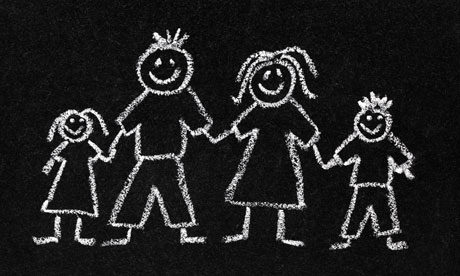An argument is made in
this article for universal preK as a way to address the country's education deficits particularly in the lower socioeconomic classes. The author, Peter Salins, starts off by acknowledging that most attempts at pre-K programs, such as Head Start, have been failures and he points out why, namely, they were little more than daycare programs.
Salins explains that if these programs were content-rich, taught by qualified professionals and, if they were more fully integrated into the nation's education system, they could successfully provide the "cultural literacy" that is necessary for getting kids started on the right educational footing. In fact, Salins suggests that we "scale up" preschool through the public education system so that all children can take advantage of it. In order for the effects of the pre-school to be lasting "we must
fully incorporate preschool within the regular district educational system [italics his]. Under this rubric, school districts would extend their educational ladder by two years below kindergarten, creating an integrated pre-K-to-grade-12 curricular program -- accessible, without extra charge, to all local schoolchildren." This sounds logical enough until one realizes that Mr. Salins, who himself is smart enough to have written a book about being smart,
Smart Society, has overlooked the real magic bullet, the family.
Throughout history, being poor or coming from a lower socioeconomic bracket has not generally been an impediment to being smart. Some of us need only think of our depression-era parents, my own for starters. My father was one of five children born to Italian immigrants, both mother and father largely illiterate with no English spoken in the home. My father's mother died when he was 12 and his father was a man of erratic behavior and work habits. The family was held together by an older sister who became mother and homemaker as best she could. She encouraged my father, a feckless student until his high school years, to go to college. He went on to enjoy a very successful career as a civil engineer. One sister was a nurse, another a secretary. In Salins' quick-fix world, my father and his sisters would have been in universal pre-K under the tutelage of some highly trained professional (in a bilingual program no doubt). But they did fine without someone feeding them their ABCs in a high-powered cultural literacy classroom. In its place, they had the family.
My father's sister, my aunt, kept the family together not because she cared whether her siblings would be smart, but because she placed value on home and family life. She knew instinctively that keeping her siblings close at hand was the best way to ensure continuity and security in their lives, an environment that would in turn give them the foundation to function confidently outside the family. Besides, if she didn't care for her own, who would?
Salins himself acknowledges that the family is where it all starts. Though his article makes only one reference to families and one to single mothers, he says that disadvantaged children come from families "unable to provide the cognitive stimulation" necessary to launch them on a solid educational path. Salins has identified the problem, broken and disabled families, but, somewhat perversely, he has come up with a remedy that treats another problem--fixing government pre-K programs. In so doing he leads us into a fine Catch-22 of treating the symptoms while leaving the root cause untouched, thereby giving rise to the same symptoms all over again. Instead of again putting band-aids on pre-K programs, why not work on building up the family since the success of the former admittedly depends on the health of the latter?
If it were possible to develop a productive, educated society by having every government-run school district pour knowledge into the heads of three year-olds, Salins' enthusiasm for universal pre K might make sense. But the toddlers he's talking about are human beings who in addition to some cognitive literacy need stable homes with mothers and fathers who are their first teachers, their first defenders and their champions. Before young children can sit in a classroom, they need to develop an awareness of who they are, where they fit in, they need to learn social skills and self-control.
Salins will never find enough teachers no matter how highly trained to do all this. It's not the job of a pre-K teacher or any classroom teacher to provide what only the family is uniquely created for. Families don't have to be perfect to be effective and parents don't need to be as rich as Rockefeller or as smart as Einstein to fulfill their role. They don't even need to be the greatest parents. They just need to know how important they are to the development of their children.
How do we change the culture of family life in our soceity? Consider the fact that the average six-year old can rattle off the earth's endangered species and deems it a crime to hurt the rain forest, that the average teenager knows not to smoke, drink or use drugs, but, yes, to use a condom, that the average citizen knows that smoking is evil and getting fat is worse. Suppose as a society we cared as much about our mothers and fathers and children as we do about which elephant is nearing extinction, or whether a 16 ounce drink is healthy. Start educating teenagers about the advantages of being married before having children. Let teen age girls and young women know that one route to poverty can be through single motherhood, that if you want to avoid that pitfall, practice chastity and get a high school degree. Educate young men about the importance of fatherhood, of being a man and the rewards that go with the role of provider and protector. Instruct young people that marriage is among the best protections against poverty, that stable homes produce the highest index of wealth. Support churches and civic groups that work to build up and counsel healthy marriages and healthy families. Re-examine divorce laws and structure the tax code in such ways that reward stable marriages and intact families.
Our society's magic bullet is not government-run education, but our human treasure in the form of our children and their parents. The family, reasonably healthy, reasonably intact, but fully supported and strengthened by the society as a whole will do the work that no policy expert or expert teacher can come close to doing.









